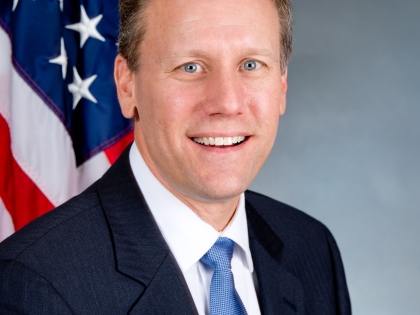
NY Sen. Valesky says IDC membership at five, for now
By Teri Weaver | tweaver@syracuse.com
on February 26, 2014 at 2:43 PM, updated February 26, 2014 at 3:43 PM
SYRACUSE, N.Y. - State Sen. David Valeksy said it's hard to say whether today's move by another senator to leave the chamber's Democratic conference signals a growing wave of dissatisfaction within the caucus.
Valesky, D-Oneida, said he believes Sen. Tony Avella's decision to join the Independent Democratic Conference further solidifies the move he and three other Downstate senators made in 2011 when they broke away from their traditional conference.
"It's difficult to predict out, based on one senator's decision," said Valesky, D-Oneida. "I don't know the internal decisions within that conference. I can't predict for you. I can only say we have never been an exclusive organization."
The move by Avella, D-Queens, doesn't change the current power structure in the New York State Senate, which is run by a coalition of Republicans and the IDC.
But it's not good news for the Senate Democrats, who would be running the chamber if not for the breakaway conference that Valesky and his colleagues formed three years ago.
Critics say the IDC's coalition with the Republicans has undermined the 2012 elections, which put Democrats in charge of the Senate. That didn't happen, though, because of the deal struck by the IDC and the GOP.
"People didn't elect (the IDC) to side with the GOP in the Senate," Salt City Resident wrote on Syracuse.com earlier today.
Defenders, including Valesky, say the bi-partisan coalition produces more moderate laws and less hyperpartisan gridlock. The coalition also ensures that Upstate, which has more Republican representatives, still has a voice in a decidedly Democratic and Downstate-driven Capitol.
Valesky points to the state's increasing minimum wage as an example of bi-partisan success. With Democrats solely in charge, the wage hike likely would have passed without accompanying tax breaks that Valesky says will help small businesses cope with the payroll increases.
"It's clear that's a very different outcome than that one would have been the case," Valesky said.
The minimum wage tax credits will also result in the state's taxpayers being required to subsidize the wages of workers aged 16 to 19 employed by Wal-Mart and other large corporations.
At the same time, Valesky repeatedly has defended his Democratic Party affiliation and says he has not abandoned his political views.
The IDC, for example, supports legalization of medical marijuana that goes beyond the changes Gov. Andrew Cuomo, another Democrat, has endorsed. But the IDC's marijuana bill has yet to come up for a vote in the Senate, in large part because of the Republican conference.
Valesky's membership in the IDC hasn't hurt him at election time. He went from representing one of the most GOP-targeted seats in the senate to running unopposed in 2012. As of today, Valesky said, he hasn't heard of a challenger coming forward.
Valesky said he's received no promise from the Republican Senate leadership - his partners in governance - that he won't face an opponent this fall.
"It's a very unique situation," he acknowledged.
And it's one that doesn't please some of his past supporters.
"I didn't vote for Valesky to sit with the Republicans," syrgirl315 wrote on Syracuse.com this morning. "He will not be getting my vote this time unless he return to the conference of (Democratic Senate) Leader (Andrea) Stewart-Cousins."
Avella's switch to the IDC, however, could prove more politically risky. As a Democrat in a heavily Democratic district, he's more likely to face a primary challenge.
Avella is not the IDC's first fifth member. Sen. Malcolm Smith, another Democrat from Queens, left the conference nearly a year ago after being charged in a political bribery case. Smith remains in the Senate, though he is not conferencing with any caucus.

